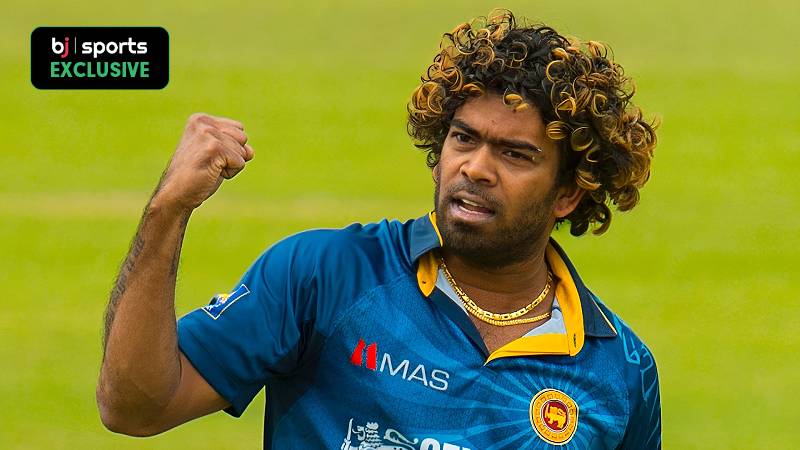
Whenever one speaks about death bowling, there is just one name that pops into the mind of many cricketing fans and that is Lasith Malinga. The star Sri Lankan bowler was widely regarded as one of the most lethal death bowlers in the history of the shortest format of the game. It was on this day when the legendary player was born on August 28 in the year 1983 at Galle.
The Sri Lankan legendary batter was renowned for his unique round-arm action, delivering potent swinging Yorkers as well as slower balls and also his effective bouncers. His unpredictability and strategic field adjustments complemented his skills. Malinga’s ability to confound batsmen persisted, even when they anticipated his moves, showcasing his adaptability and element of surprise.
Malinga’s cricket journey began with a promising start in Tests, debuting for Sri Lanka in 2004 with notable performances against Australia and New Zealand. However, his true destiny was in the shorter formats, where his unique bowling skills shone. The 40-year-old famously took four wickets in four balls in the 2007 World Cup, solidifying his position as Sri Lanka’s limited-overs leader alongside Mahela Jayawardene, Kumar Sangakkara, and Tilakratne Dilshan. From 2007 to 2014, Malinga played a pivotal role in Sri Lanka’s success in global tournaments. In the ODI format, the Sri Lankan legend played 226 matches in which he ended his career with 338 wickets.
However, his Test career was hampered by injuries, including a knee injury in 2008 that sidelined him for two years. Although he returned for Muralitharan’s farewell series, more injuries led to his Test retirement in 2011, aiming to prolong his white-ball career. Malinga’s distinctive round-arm action took a toll on his hips and legs, contributing to his struggles. In the longest format of cricket, the right-arm quick had played 30 matches and accounted for 101 wickets.
The association with the IPL’s Mumbai Indians earned him recognition as a T20 icon. The pinnacle of his career arrived during the 2014 World T20, where he guided Sri Lanka to victory. However, fitness issues, both intrinsic and self-imposed, started to erode his effectiveness. Ankle problems escalated, leading to surgery in 2014. His performance slowed, and he faced weight concerns. The IPL was also a great tournament for the Sri Lankan legend, in the 122 matches which he played, the right arm quick took 170 wickets.
Malinga’s captaincy and playing roles were impacted by persistent injuries, stepping down as T20 captain in 2016 due to a chronic left knee issue. The 39-year-old’s future oscillated between potential retirement and a desire to continue. Despite this uncertainty, Malinga’s legacy remains an essential part of cricket history, characterized by his lethal bowling style and his contributions to Sri Lanka’s successes in limited-overs cricket. Similarly, in the T20I cricket, 84 matches which he played he took 107 wickets.
 Predicting Brisbane Heat Women’s playing XI for their match against Melbourne Stars Women in WBBL
Predicting Brisbane Heat Women’s playing XI for their match against Melbourne Stars Women in WBBL OTD| A last-ball six by Shahrukh Khan gave Tamil Nadu their second consecutive Syed Mushtaq Ali Trophy in 2021
OTD| A last-ball six by Shahrukh Khan gave Tamil Nadu their second consecutive Syed Mushtaq Ali Trophy in 2021 3 reasons why Punjab Kings retained only two players ahead of IPL mega auction
3 reasons why Punjab Kings retained only two players ahead of IPL mega auction 3 Indian players to watch out for from the 1st Test between AUS vs IND
3 Indian players to watch out for from the 1st Test between AUS vs IND

